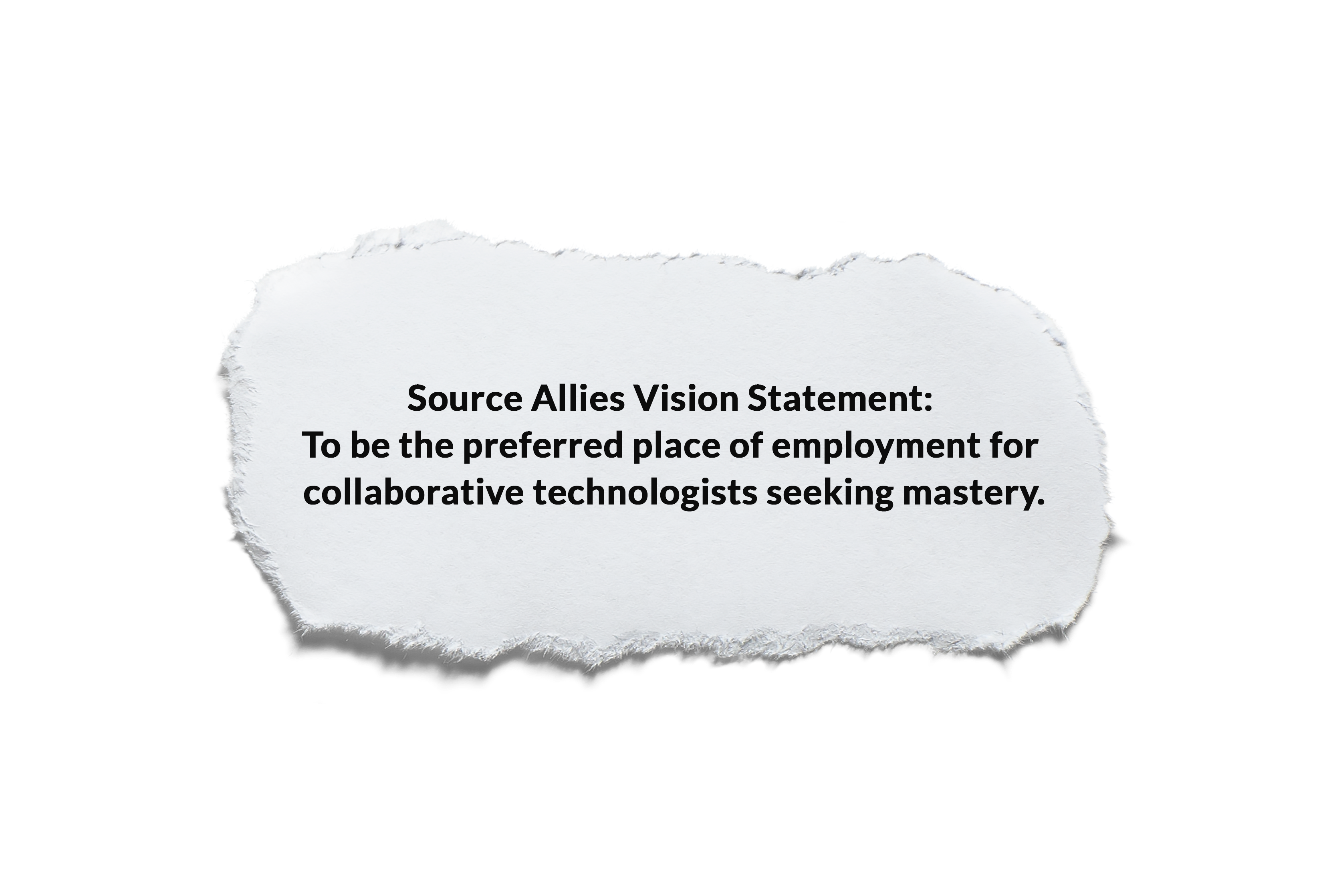Sharing Our Passion for Technology
& Continuous Learning

For over 20 years at Source Allies, we’ve found this quote to ring true. Strong feedback loops are required for growth. As a flat organization with a vision statement supporting collaboration and an individual’s pursuit of mastery, peer feedback is especially critical.
How do we create a feedback culture? It starts with nurturing a growth mindset, personal connection, and bravery.
A Growth Mindset Culture
Have we mastered giving and receiving feedback? No, which is OK! To create a growth mindset culture, we as a team, whether new or of the highest tenure, should be able to admit there's room for growth and improvement. We all need to create an environment where teammates feel safe to step outside their comfort zone. This safety supports the practice of giving and receiving feedback.
We value candor and recognize that direct and sincere conversations lead to growth. Feedback is also a sign your colleagues care about you and your success. Yet, many don't know how to start, and it can make us uncomfortable to the point that we'd prefer to avoid the perceived conflict at all costs. To embrace feedback as a norm, we need to be courageous and break out of our comfort zone. We need to develop the necessary skills so it becomes easier, something more innate within our teams and eliminate the idea of it being a taboo experience. The more frequently an action or behavior is done, the easier it becomes over time. Giving and receiving feedback are skills that need to be developed and practiced.
Questions to consider:
- How do you promote and model giving and receiving feedback?
- When was the last time you asked for direct feedback?
- What are your team expectations around giving feedback?
- How often is individual feedback given? (team retros don’t count)
The Importance of Personal Connection
Authentic relationships between teammates are foundational to building a culture of feedback on a team. Brené Brown references this as "getting to the heart of the issue, with heart" or what Reed Hastings and Erin Meyer, the author(s) of Netflix's 4A Feedback Guidelines, call "Aim to Assist." Feedback must be given with positive intent because we genuinely care for the person's success, not because we want to win or prove someone wrong.
One way to show you truly care about someone's success is to create a deeper connection with that individual. As consultants, we change partners, projects, and who we work with often. We have a small window to develop a strong connection and it's common to want to "feel things out" and observe. We encourage our teammates not to wait to establish a connection with their peers.
Start deeper connection conversations early and have them often. You might not truly know your teammates until you understand what each person on your team values and the goals they're striving to achieve. Most importantly, be ready to share your values and goals in return and be prepared to be vulnerable. As Brené Brown states, "Know my values = know me. No values = no me" (p. 208, Dare to Lead). To me, this is akin to Source Allies' training partner, Your Leadership Group’s, approach of, "Who are you, who am I, and who are we together."
Uncovering this reinforces your connection and creates a shared understanding of values and goals, making feedback and managing conflicts within your team much easier. These conversations foster a safe environment to incorporate and normalize feedback.
Questions to consider for building deeper connections with others:
- Why run the risk of passing judgment and writing your own story about who they are based on perceptions and impressions?
- What do you admire in leadership?
- What are your emotional triggers?
- How do you prefer to receive criticism?
- What are your goals or something you’re actively working on improving?
- What characteristic do you most admire in others and why?
Be Bold and Be Brave.
I challenge you not to wait for connections to build over time; be bold and truly get to know your teammates. Do not write your own story and create your own bias about your teammates by avoiding conversations with them. Ask the questions that might push you outside your comfort zone. Invite teammates to provide feedback often and model the behavior. Create visibility for your teammates when you receive feedback to showcase the impact and importance of it within your team. Go beyond talking about the importance of candor and feedback - practice and celebrate it. Embrace it and let it fuel the spark when you want to share something in the future. It’s a flame you have to actively keep lit.
As we all continue our path to mastery, remember, "If we shield ourselves from all feedback, we stop growing" - Brené Brown, Dare to Lead.





